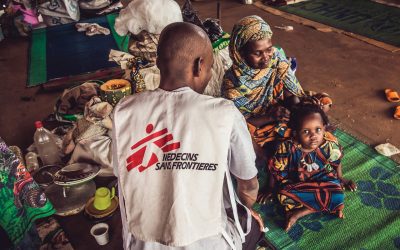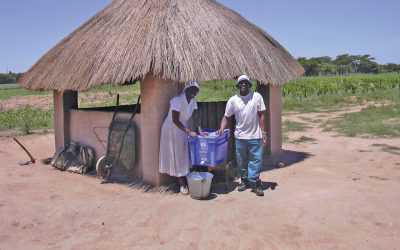Kofi Annan was a Ghanian diplomat who rose to worldwide fame when he was appointed UN Secretary General in 1997. He has an impressive list of accolades behind him, and in 2001 he and his team were awarded a Nobel Peace Prize for their work ‘in a better organised and peaceful world’.
He is chairman of ‘The Elders’, an independent group of global leaders who work together for peace and human rights, which was brought together in 2007 by Nelson Mandela. In December 2006 he stepped down as UN Secretary General and set up the Kofi Annan Foundation. He is a strong advocate of promoting better global governance and strengthening the capacities of people and countries to achieve a fairer, more secure world.
Kofi Annan has a vision of making the world a better place, and his experience as UN Secretary General has given him the insight into what is required to make it happen. He has served as an inspiring force for people across the world and he talks about what was the driving force behind his vision.
“When I was a boy, my father used to tell us: ‘You don’t hit someone on the head when you have your fingers between his teeth’ to remind us that even in dispute, we remain bound to each other. In this innocuous proverb lies a wisdom that the world is yet to fully embrace. My long experience has taught me that, whatever our background, what unites us is far greater than what divides us.
“When I founded the Kofi Annan Foundation, I did so with the belief that the pillars for a fairer, more secure world consists of sustainable development, of peace and of human rights, and this conviction has only grown stronger over the years.”
“No society can long remain prosperous without the rule of law and respect for human rights.”
“These pillars are interconnected and interdependent, for there can be no long-term security without development, and there can be no long-term development without security. And no society can long remain prosperous without the rule of law and respect for human rights.”
“Yet for now, epidemics, hunger, the climate crisis, weak and undemocratic governance, and many more threats all eat away, mercilessly, at foundations of our societies.”
“At the Kofi Annan Foundation we work on mobilising the required political will – across the worlds of diplomacy, civil society and private sector – to curb those threats. ”
“The expertise and know-how to deal with and eradicate most of the world’s critical issues is after all often well-established. What holds us back is a lack of vision, of leadership and of the political resolve to fix things. Mobilising this political will is what we have set our minds to.”
“I remain optimistic that one day we will see a world where leaders look beyond the next electoral cycle or the next shareholder meeting. Where we collectively realise that we do not live in a zero-sum world where someone’s gain automatically comes at another’s expense.”
“I envision a world where these values are supported by an international architecture, a modernised United Nations that reflects the changing balance of global power brought about by the rise of China, Brazil, India, South Africa, and other emerging countries.”
“But above all, of a United Nations that serves not only states but foremost peoples – and becomes the forum where governments are held accountable for their behaviour toward their own citizens. A forum where the shared values of pluralism, tolerance, solidarity, democracy and dialogue triumph over unilateralism, ultra-nationalism, and over the politics of identity.”
“You may argue that this is a pipe-dream, that around the world, personal liberty, human rights, and democracy are being eroded – even in countries that have embraced democratic ideals.”
“But remember that never before in human history have so few people (as a proportion of world population) died from armed conflict. It may not make headlines, but the international system, with its rules and institutions, allows states to settle most of their disputes peacefully, most of the time.”
“Let us renew and strengthen this international system. From epidemics to climate change, we need to set our narrow self-interests aside and realise that we are in this world together, for better or for worse. Hitting each other on the head has not done us much good in the past. It is time to move beyond that, to embrace our common humanity and resume our journey towards a fairer, more peaceful world.”
Kofi Annan works tirelessly with groups across the world, and in a time of such turmoil we need to all work in solidarity to help achieve his vision.


























































